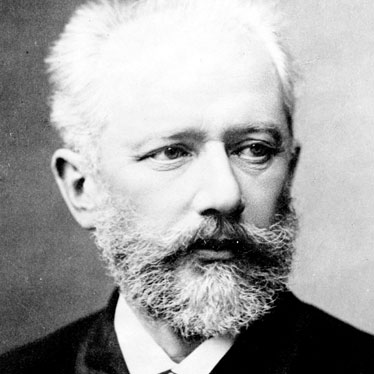
Every music student is familiar with at least one of the works of master composer, Pyotr Ilyich Tchaikovsky. In fact, you’re probably familiar with more of his melodies and measures than you might be aware of, because some of his themes have become iconic parts of Western culture. Having created over 169 compositions, Tchaikovsky established a legacy that is still influencing musicians today. His unique blend of Western influences combined with traditional Russian folk melodies, nationalism, and his personal genius has created some of the most beloved, and recognizable pieces of classical music ever produced.
Music students learn the basic facts about Tchaikovsky’s life and most famous compositions fairly early. They’re taught how he was born in Votkinsk (present day Udmurtia), and how he became the first Russian composer to be recognized internationally; and how he made many guest conductor appearances in Europe and the U.S. Although he lived a relatively short life, dying at the age of 53, in 1893 in St. Petersburg, this Romantic era composer had a knack for writing music that reflects the turbulent emotions of life. In fact, he did it so brilliantly that his music still speaks to audiences today.
However, there are many remarkable aspects of his life that aren’t widely known. This list of 10 amazing facts, which have been gleaned from various biographies and other sources, will help you learn a little more about Tchaikovsky and hopefully give you a further appreciation of his contribution to culture and musical excellence.
- One of his quotes: “Inspiration is a guest that does not willingly visit the lazy.” –Tchaikovsky. He definitely lived by this philosophy. From his early piano training (at age five), until his death, this man was driven to work and excel.
- Tchaikovsky trained for, and became a civil servant in Russia. At the time, a musical profession didn’t convey the sort of social status that was acceptable to his family’s respected position. His great-grandfather had distinguished himself in the Battle of Poltava in 1709, under Peter the Great, and Tchaikovsky’s grandfather server as city governor of Glazov in Viatka. Music instructors and chamber musicians were looked down upon, so in 1859 he embarked on his public service career and spent three years in the Ministry of Justice, rapidly advancing to senior assistant.
- As a young man, Tchaikovsky was enamored of Belgian soprano, Desiree Artot, and they actually became engaged in 1968. A difference of opinion concerning her career led to the couples’ break up. He later asserted that she was the only woman he ever truly loved.
- His marriage to former student, Antonina Miliukova, in 1877 lasted only a few short weeks and led to a severe nervous breakdown. Later, he would ascribe the disaster to his own faults, not hers.
- He carried on a correspondence relationship with his patroness, Nadezhda von Meck, for 13 years. Widow of a railway baron who built a multi-million dollar transportation monopoly in central Russia, von Meck supported Tchaikovsky emotionally and financially, before and after his brief marriage to former student Antonina Miliukova. They exchanged over 1200 letters during that time, but only met briefly once, in 1879.
- Throughout his career he received harsh criticisms concerning his works. Many critics felt that Tchaikovsky’s music pandered to audiences, and therefore was contemptible. Because of the unique time period in which he composed, and his unique ability to merge Western music concepts with traditional Russian ones, it was difficult for him to receive unanimous praise. In fact, it wasn’t until very late in his career that his genius began to be appreciated, however, nothing like it is now.
- Tchaikovsky suffered from severe anti-social behavior and irrational stage fright. During his guest conductor appearances, he would hold his hand on his head because he feared that it would become detached from his body.
- Tzar Alexander III bestowed upon him the Order of St. Vladimir in 1884. This hereditary title of nobility solidified his social standing in Russia. From that point on, he was less introverted and his popularity soared.
- Tchaikovsky conducted the inaugural concert at Carnegie Hall in 1891. He led the New York Music Society’s orchestra.
- He described his 1812 Overture as “very loud and noisy” and said that he wrote it “with no warm feeling of love.” Although it was scheduled to be performed with real cannons and bells from the Cathedral of Christ the Savior (which was built to commemorate Russia’s victory over the Napoleonic army) the plan was too ambitious, and never performed there.
Tchaikovsky is celebrated today for his legacy of personal artistic expression. His music is timeless because it so accurately reflects human emotion and the highs and lows of the human experience. Learn more about this prolific composer, and hear Tchaikovsky’s voice here.


